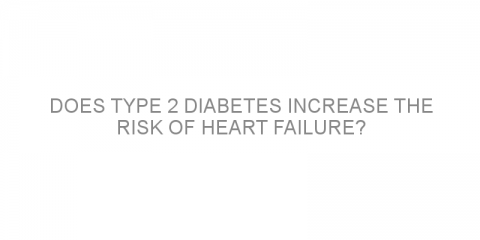In a nutshell This study investigated the long-term effects of ipragliflozin (Suglat) in people with type 2 diabetes (T2D). It was determined that ipragliflozin showed long-term beneficial effects on blood glucose control, weight, and kidney function. Some background Ipragliflozin is an SGLT2 inhibitor. SGLT2 inhibitors are medications for T2M that...
Read MoreDiabetes mellitus Posts on Medivizor
Does improving glycemic control reduce the risk of infections?
In a nutshell This study investigated the link between glycemic control (control of blood glucose levels) and the risk of infections in people with diabetes. It was determined that poor glycemic control is associated with a higher risk of infection, especially in people with type 1 diabetes (T1D). Some background T1D and type 2 diabetes...
Read MoreClinical Trials Today
Prior to the 20th century, most people lived about 47 years in the developed world because of infectious diseases. In 1940, the first use of penicillin to treat infectious diseases occurred and penicillin became available in 1945 to the general public. Science and research conducted throughout the 1950s, 60s, and 70s, created more antibiotics so that life...
Read MoreDoes type 2 diabetes increase the risk of heart failure?
In a nutshell This study investigated the risk of heart failure in people with type 2 diabetes (T2D). It was determined that T2D was associated with a higher risk of heart failure in both men and women, of all ages, but especially in younger people. Some background Heart failure happens when the heart is not able to pump enough blood through the body....
Read MoreDoes diabetes increase the risk of irregular heart rhythm?
In a nutshell This study investigated the link between diabetes and atrial fibrillation (AF; irregular heart rhythm). It was found that having diabetes or prediabetes increased the risk of AF and that the risk increased as blood glucose levels increased. Some background Some studies have found a link between diabetes, prediabetes (persistently high...
Read MoreDoes weight loss surgery reduce the risk of small blood vessel disease?
In a nutshell This study investigated the effects of weight-loss (bariatric) surgery on microvascular disease (disease of small blood vessels) in people with type 2 diabetes (T2D) and obesity. It was found that weight-loss surgery reduced the risk of all types of diabetes-related microvascular disease. Some background Obesity is common in and may...
Read MoreNew strategies to reduce weight in people with type 1 diabetes
In a nutshell This study investigated the effects of intensive multidisciplinary weight management (IMWM) in people with type 1 diabetes (T1D) and obesity. It was determined that IMWM resulted in significant weight loss, lower glucose levels, and reductions in total daily insulin dose in these patients. Some background T1D is treated with insulin, the...
Read MoreIs combining empagliflozin and linagliptin safe?
In a nutshell This study evaluated the safety of a combination of empagliflozin (Jardiance) and linagliptin (Tradjenta) compared to either drug on its own, in people with type 2 diabetes (T2D). It was determined that the combination was as safe as either drug alone. Some background Metformin (Glucophage) is usually the first drug given to...
Read MoreDo SGLT2 inhibitors lower the risk of cardiovascular disease in patients with type 2 diabetes?
In a nutshell This study evaluated the effects on cardiovascular disease (CVD) of SGLT2 inhibitors compared to two other drugs used to treat type 2 diabetes (T2D), sulfonylureas, and DPP4 inhibitors. It was determined that SGLT2 inhibitors were associated with a lower risk of developing CVD. Some background People with T2D have an increased risk of...
Read MoreIs ranibizumab better than laser treatment for retinopathy?
In a nutshell This study compared the safety and effectiveness of ranibizumab (Lucentis) to panretinal photocoagulation (PRP) in adults with proliferative diabetic retinopathy (PDR). It was determined that both treatments improved visual acuity, and had similar rates of complications, but ranibizumab resulted in less visual field loss and lower rates of...
Read MoreIs empagliflozin better than glimepiride?
In a nutshell This study compared the safety and effectiveness of empagliflozin (Jardiance) with glimepiride (Amaryl) in people with type 2 diabetes (T2D). It was determined that empagliflozin reduced HbA1c more than glimepiride, and had a lower overall risk of side effects. Some background Metformin (Glucophage) is usually the first drug given...
Read MoreCan strict control of blood glucose levels increase the mortality risk?
In a nutshell This study investigated whether strict control of blood glucose levels (glycemic control) increases mortality (risk of death) in older adults with type 2 diabetes (T2D). It was determined that tight glycemic control increases the mortality risk in such persons when it is achieved with metformin (Glucophage), sulfonylureas, or insulin. Some...
Read More













